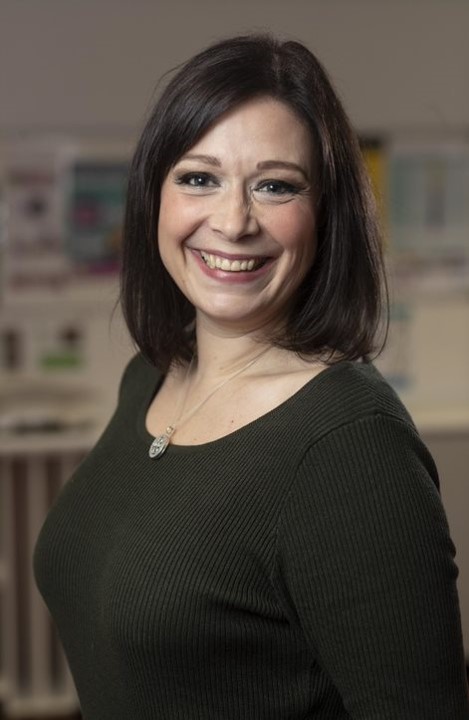 Nikki Forsyth is a Health Visitor and Queen’s Nurse currently acting up as Team Lead for Health Visiting and School Nursing. Nikki shares her journey into the new role in the first of a three-part blog series about her secondment.
Nikki Forsyth is a Health Visitor and Queen’s Nurse currently acting up as Team Lead for Health Visiting and School Nursing. Nikki shares her journey into the new role in the first of a three-part blog series about her secondment.
At the start of 2021, I was given the opportunity to take on secondment as acting Team Lead for Health Visiting and School Nursing. It was such a great opportunity for professional development and despite considering how big a challenge it would be to take on a leadership role at the start of the second lockdown, I ultimately felt it would only be of benefit.
That’s not to say I wasn’t also apprehensive. I was going to be stepping out of my professional comfort zone to take on this role. But, to quote Eleanor Roosevelt, “You gain strength, courage and confidence by every experience in which you really stop to look fear in the face. Do the things you think you cannot do.”
Right from the beginning of my secondment, I have been provided with incredible support from both the management structure around me and from my peers.
Peer support was in place from my very first day and the initial question I was asked was “What do you want to achieve?”. My response: “I really want to do a good job and to me, that means empowering others and being supportive, encouraging self-efficacy so that those around me feel the reward of their own achievements. I want to help create a solution focused culture. I’m incredibly excited for this opportunity”.
Achieving all this within six months and during a global pandemic was going to be challenging, but I knew I wanted to become a leader that could achieve this! I’m known for setting myself ambitious goals but as I’ve said my support has been amazing and I wanted to make the most of it. I was told to really think about how to break this down and start small. I wrote myself a route map starting with the question “why?”. Why did I want to take on this role and go on this journey? I dutifully sat down and wrote myself a list which I’ve included below:
- To empower those I am leading.
- To guide and communicate the vision of the team and individuals.
- To ensure greater responsibility and accountability in myself and in the team.
- To create solution focused, forward thinking teams
- To identify and nurture future leaders (succession planning).
- Collaboration.
- Advocating for greater autonomy.
- To develop myself, especially in my communication skills and my ability to motivate and inspire.
In 2019 as I began my Queen’s Nurse journey, I spent time thinking about my question for development. This question is about teasing out all the layers of a person, it is a question that leads to more questions that promote discovery, exploration, and development. My own question? It was: “how do I become a leader that motivates and enables?”.
Exploring my why list and my development question, I’ve really focused on the power of positive praise.
As a health visitor the power of positive praise and how beneficial this can be on your self-esteem is regularly discussed with service users. I once read a quote stating, “praise raises, criticism tears down” and that has stuck with me. In my quest to become a leader that motivates and enables, I reminded myself that as health visitors we teach positive praise to our clients but questioned whether we remember to employ it in our everyday lives, both at work and at home. If praise can raise someone up, motivate them and enable them to confidently step into their roles at work they are more likely to achieve all they can and that is beneficial to the organisations and clients they work with. How many of us leave work and spend our days off worrying about a piece of work? Surely carrying the confidence that comes with self-praise into our home lives will naturally help our work/life balance fall into place?
When our goal is to raise people up it makes those in leadership positions more approachable, this space for open dialogue then helps support progress towards common achievements. This sounds very idealistic, but the Health Visiting service works from a strength-based focus. Whilst there will regularly be challenges that need to be addressed and constructive criticism shared, the overall focus is always on the strengths, acknowledging them and building on them to motivate and nurture self-efficacy.
The kind of leader I strive to be is one that recognises strengths, motivates, and enables staff to reach their potential, and raises them up. By being that role model, I know they will go on to raise up those around them.